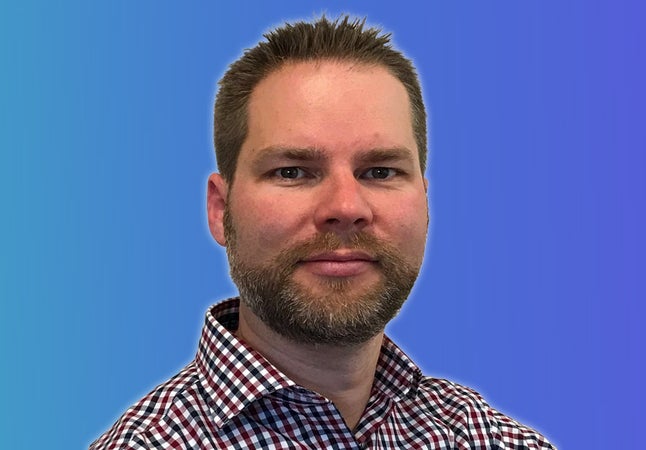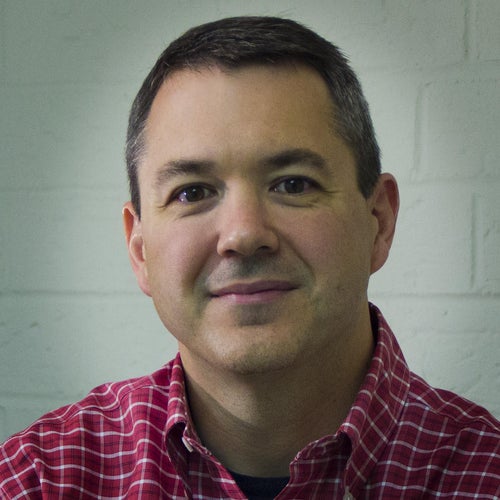What does a typical day look like for you at Trilogy?
My day starts with getting up to speed on everything that happened overnight: reviewing pull requests; unblocking any barriers affecting the team; fielding any questions or requests from other people we work with. Once the urgent tasks are handled, I can focus on more important tasks.
My most important task is ensuring we achieve our goals.
For this, I need to ensure that:
- We have a pipeline of work from product managers and customer support
- The work is prioritized, assigned, and well-defined
- Our team is able to do the work, they have the tools, access and knowledge to do so
- The work is high quality and meets my quality bar
- We demonstrate deliverables and regularly release them to customers
We don’t want to spend our time managing work, so we put systems in place to manage it.
For example: our work is in well-defined data structures; we have visibility of work in dashboards; we use queues to assign work; we have well-defined data structures for everything.
Exceptions and deviations are constant, so I need to be vigilant.
I need to personally understand the inputs and outputs, so I know whether the system is working and will achieve our goals.
Once the system is working, then I can use my time to help move us forward. This may be at an organizational level, by hiring staff, diagnosing impediments, doing research, writing a second brain, or implementing system improvements.
It may be at a team level, by coaching team members, directly working on escalated tasks, or intervening in tasks that are going off-track.
After my day ends, this is when most of my colleagues start coming online.
In the evening, I will have one-on-ones with my team, meet with stakeholders, do product demos, and handle any urgent reporting or management tasks.
Watch our day in the life video here.
Which project or feature did you recently find exciting or challenging?
Recently we worked on building AI agents to automate simple engineering tasks.
We integrated with Tempo, our work management system, to intercept engineering tasks before they’re assigned to humans. We created eRAG, a repository of contextual information for our product codebases.
We created AI Agents, using prompt techniques based on Auto-GPT and Open Interpreter, and supported by tools to access our data and systems.
We integrated with Sweep AI to turn our plans into code. We used benchmarks and test suites to track effectiveness and make consistent, incremental improvements.
This was particularly challenging as engineering tasks such as root cause analysis fall outside the capabilities of current LLMs - it requires a level of logical understanding and progression that cannot be achieved with pattern matching alone.
We bridged this gap by using various agentic techniques, such as incremental data structures and agent-generated plans, allowing it to achieve more than simple prompting.
How do you leverage AI tools in your daily coding tasks, and how has it impacted your efficiency?
Our company vision is to be AI-First - we choose to aggressively and intentionally adopt AI tooling and become experts in it, because companies that are effective in using AI will lead in the future.
Cursor has moved engineers from simply writing code, to orchestrating code.
We can now make changes by identifying what needs doing, instructing the AI on the outcome we want, and refining it. We generate code more than we write it.
One weekend we had a hackathon to create a product that will help us review timecards, identify AI tools, and use that to steer us towards greater AI use. We developed a production-ready system in one weekend, with a full user interface and built-in AI capabilities.
This was only possible because we extensively used AI development tools to generate 50% of the code, including the whole user interface and most of the service code.
How do you collaborate with other members of the global engineering team?
Asynchronous communication is essential for us.
With remote work, and distributed time zones, we can’t rely on people being available when we are. We use Google Chat extensively to communicate amongst our team.
The transient nature of it means we don’t get flooded email inboxes. We use Google Meet for when we need a discussion or a presentation.
What tools and technologies do you use on a daily basis to accomplish your tasks?
Cursor - this IDE is our first choice for development; because it allows you to directly instruct it to make code changes.
ChatGPT - we use ChatGPT and Custom GPTs extensively to solve a range of problems. We have it wired into our code repositories and tools, so we can use it to access information and make changes more quickly than we could.
charmbracelet/mods – we use AI directly from the console; it’s great if you spend a lot of time working from the command line.
GitHub Issues - A developer’s life is often driven by tickets. We have moved away from the complex workflows of Jira; and use GitHub Issues to track our work - simple and effective.
We use Google Workspace so that all our documents are in the cloud, and available to be actively collaborated on. We don’t email around documents here.
How do you prioritize and manage your workload to ensure you meet deadlines and deliver high-quality work?
Trilogy has a tradition of systemizing the work we do.
It’s the responsibility of your SVP to ensure this is working well, and you always know what to work on next. We’re currently in a state of transition, so this may differ from team to team.
Some use Tempo to manage work. With Tempo, you’ll ask it for a task, and it’ll always give you the most important task to work on, and will track your delivery effort.
Other teams use assignments. You may be assigned a spec and a maintenance task to work on each week, and are expected to manage your time such that these are both delivered.
Have you seen comments about Crossover in news articles and review sites? What’s it really like?
I’ve seen Crossover written off as a "scam" by people that never made it through the application process.
Their skepticism is understandable - we only hire a tiny fraction of applicants; and the filters seem impossible to people who don't make it.
But Crossover is real, many people have worked here for a long time and can attest to this. The model is just different - we hire and operate globally, it’s extremely competitive, the bar is high, and we only hire the best.
At Trilogy you will be paid well, you will have the opportunity to work with very intelligent and capable people, you will have the opportunity to implement and drive rapid change, unencumbered by organizational barriers, and you will be able to prove yourself.
It’s a chance for you to show your best.
Learn more about Crossover here.
What aspects of Trilogy's engineering culture and work environment do you find most appealing?
Decisions are deep, technical, and evidence-based.
In the previous company I worked at, management decisions were often based on perceptions - people would share their experiences and understanding with leads, who would share them with managers.
The scope and impact of most problems were anecdotal or hypothetical. At Trilogy, you will see (for example) “I reviewed 100 work units, 36% were low quality because of insufficient testing. Our process does not explicitly ask for a regression test. Fixing this reduces downtime by 15%”.
This is way more compelling!
What growth and professional development opportunities have you experienced at Trilogy?
There are many opportunities to expand your skills at Trilogy.
We hire based on ability, not technical fit. We expect great people will learn quickly. Our business model is based on acquiring companies, and so there are always new products to learn.
Trilogy is an early adopter of technology. We bet big on AI, believing that companies that don’t will get left behind. As part of your day to day work you will have the opportunity to learn AI tools, and will be expected to use them, even if it takes longer for you to get up to speed.
We know that once people are great at using AI, they outperform everyone else.
Formal promotion opportunities are uncommon at Trilogy. Trilogy has a promotion process. Even so, changing companies is the best and fastest way to get ahead.
Crossover provides you access to a range of companies under the ESW umbrella.
What learning or development resources does Trilogy provide to help you stay up-to-date with the latest technologies and industry trends?
The majority of learning at Trilogy is self-directed learning using publicly available resources.
This quarter we sent a cohort of people to the 10-week AI for Developer Productivity course, which is a great opportunity to accelerate your AI learning.
Have you had the opportunity to mentor or be mentored by other team members at Trilogy?
One of my previous managers, Mircea, was a great mentor.
He consistently sets a high standard, and refines everything until you understand how to achieve it. He would share insights into the wider organization, expanding your horizons and understanding of why the organization works the way it does.
One of my first direct reports, Bugra, was an excellent team lead.
But he never learnt coding, and this was holding him back. I helped him to learn to write macros, so that he could automate the tools he uses to manage teams.
What is the application and interview process like at Trilogy?
The application was largely self-driven and automated, I could see my status at all times, this was great compared to other companies where you may or may not hear back.
I had 15 minutes free, so did the CCAT test. I had no idea how critical it was. I was fortunate to get through as I had not seen anything like it in a long time and didn’t prepare.
The first interviewer was very impressed by my profile, particularly he described my coding test as the best he’d seen, and my level of experience as potentially a fit for SVP. I was very reassured by this, and thought it would open future advancement opportunities.
The second interviewer needed to reschedule multiple times, and eventually stopped responding. After a week I reached out to the first interviewer, who was able to assist.
I was offered the role. I had two job offers on the table, and opted for this one. The pay was better, it sounded more challenging, and there would be more opportunities to learn and grow.
Explore our selection process here.
How often do you receive feedback or performance reviews, and what are they like?
You have to own your performance and proactively seek out feedback.
Managers are willing to provide feedback when asked. There is no formal performance review process. However, when we are forced to shrink teams, performance is always used as a basis for this.
I strongly encourage you to:
- Organize weekly one-on-one meeting with each of your direct reports
- Use team channels and meetings to recognize good performance
- Immediately notify people of instances where they fall short of your expectations
Your team’s performance reflects on you, and there is no tolerance for low quality work. You must set a high standard for your team, ensure they meet the standard by personally reviewing work, and provide coaching often.
How is your individual and/or team performance measured?
Team performance is measured on two things:
- Have we delivered the business value we committed to deliver this quarter?
- Have we kept the maintenance backlog under one week of work?
Individual performance is measured depending on the role:
- Individual engineer
- Quality: is it correct, is it simple, is it robust
- Productivity: are you delivering the amount expected of your level, e.g. Elite Coder is expected to delivery 2x as much as an AI-SE3
- Elite Coder / VP
- In addition, you also must establish yourself as an expert on a topic that’s important to us
How do you envision the future of AI-augmented software engineering at Trilogy?
In the future we will have individuals orchestrating armies of AI agents and processes to tackle wide reaching changes.
A single engineer will be able to manage the entire maintenance needs for a product line; and deliver ongoing functionality improvements. They will be able to do a fully product rewrite, taking it and transforming it to be AWS native and AI-aligned.
Our superpower will be our use of AI to engineer products, and our expertise and knowledge will enable us to do this at a scale and speed that companies cannot.
This will be why companies fail with their in-house IT teams, and why we can buy those companies and products and run them at a dramatically higher quality with lower cost.
Apply for a software engineering role now.
What skills, traits, or abilities have made you successful in this role?
Be relentless.
During my interview it was noted that several prior candidates from Australia had been unsuccessful, and that they would come in late on conversations and decisions. That wasn’t going to happen to me - the first two years I worked until 3am so I could manage my team hands on and make decisions on-the-fly.
Be deeply technical and hands-on. You cannot assume others will have the same understanding and expectations that you have. It’s you that’s on the line if there are problems, so you need to make sure you personally understand any issues and can steer in the right direction.
The WorkSmart releases were taking 4 hours. My team indicated that this is the timeline we need to work with. No. This was an assumption, because they didn’t know how to, or didn’t have the access or the time to understand the problem fully. I drilled in, got infrastructure access, got machine access, identified aberrant processes, rebooted and reinstalled, and it was down to 4 minutes. Problem fixed in under an hour.
You learn and iterate and improve every single day. Problems must be overcome immediately. Actions taken quickly. You cannot afford to slow down or wait.
Loved this interview? Here's another.







